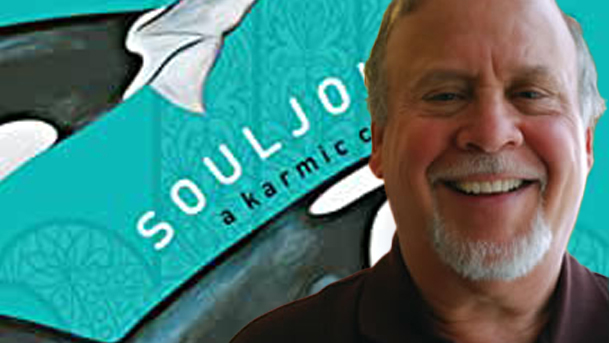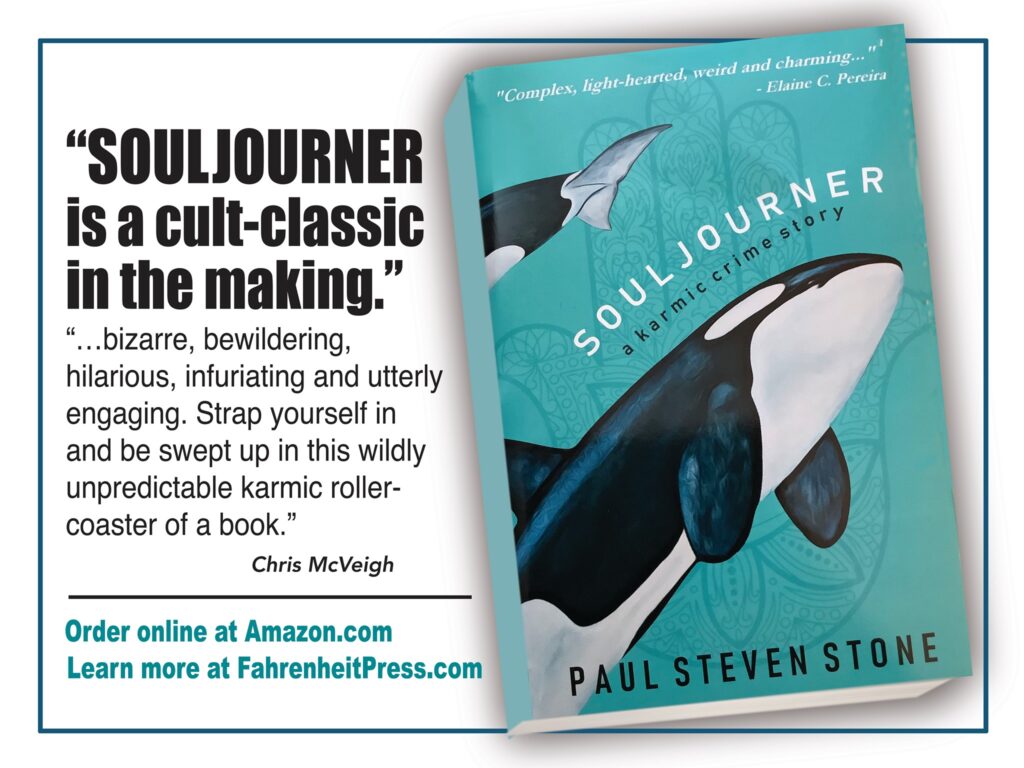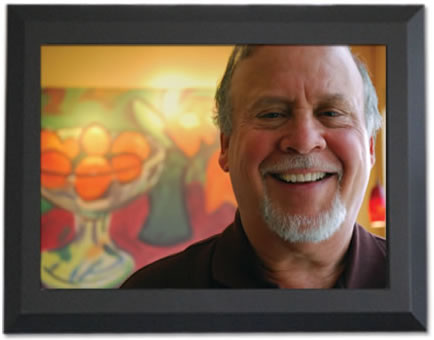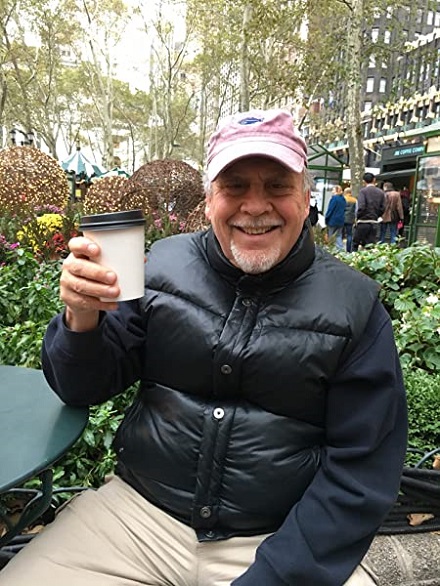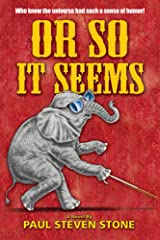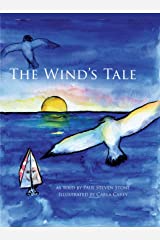Tellest: Hello Paul! I wanted to thank you for giving me some time to learn a bit about you and about your creative projects. It’s always interesting to find someone who expresses themselves in so many different mediums, and to try and get an idea of how they function. Because of the expansiveness of your talents, I’m sure you’re very busy, so I appreciate the chance to talk to you and to figure out what makes you tick!
Paul Steven Stone: It’s my pleasure. I’ve been looking forward to this interview.
T: I always like to start my interviews by trying to learn more about the starting point from where the storyteller began their creative journey. When it comes to your inspirations, did you have any famous authors whose work you just couldn’t put down? Or did you have someone close by—a family member or family friend, perhaps—who nudged you down that path?
PSS: Funnily enough, I have vivid memories of two separate school book fairs back in elementary school where I purchased a book in each that totally blew me away. Up till then, I had never known the power of books or the joy the reading. I can’t say my calling as a novelist or writer directly evolved from those two books, but a fire deep within was either ignited, or stirred up.
T: And what were names of the two books?
PSS: The first was The Adventures of Sherlock Holmes by Sir Arthur Conan Doyle. The second was Shane by Jack Schaefer. Imagine starting your life as an avid reader devouring Sherlock Holmes!
T: Interestingly enough, both of those stories feature characters who didn’t overstay their welcome, and moved along, either to the chagrin of the other characters, or even the reader. I know you have a third book planned in your trilogy, but do you see yourself sort of burning it all down after the third book, or are you going against the grain there, and could see yourself keeping at it with the organization you introduce?
PSS: At present, I’m envisioning my next novel in the eries as an origin story about The Seekers For Truth. I would tell you more, but I am still waiting for my muse to join me on the journey.
T: Interestingly enough once again, that sort of leads me down in another direction. Certainly, these sort of academy-based stories have been picking up in popularity lately. The Librarians, The Magicians, Harry Potter, Kingsmen… They all have a focus on knowledge as well. Yours is a bit more of what I would call “personally cosmic” in that there’s a bit more spirituality to it. How do you keep things feeling grounded, all things considered, and not let your ideas explode into a supernova?
PSS: I believe it’s easier for me to keep grounded because I believe in the existence of the spiritual world, believe we are living our lives day to day totally unaware of these forces that shape both the world and our journey through that world. I begin Souljourner with a quote from a French Jesuit, Teilhard de Chardin, that truly says it all: “We are not human beings having a spiritual experience, but spiritual beings having a human experience.”
T: Before we get into the details of your book, Souljourner, I wanted to spend a little more time getting to know you. You’ve got a pretty expansive history of flexing your creative muscles, from branding, to directing, and now to developing feature length novels. What was it like beginning your creative journey, and what has been the most enjoyable stop along the way?
PSS: Good question! I didn’t realize it till much later, but the creative fires within me have been active since my earliest days in college, when I wrote a few highly creative short stories. I always found words needed to be used with precision and respect. To this day, I cannot use words imprecisely without feeling almost physically off balance. If a doctor asks me if I feel pain, and the feeling I have is more akin to discomfort, I can’t help but use the latter word in describing the experience. My inner writer won’t tolerate anything else.
T: In your case, is it that pain is more emotional than physical then?
PSS: No, I see pain as more hurtful than discomfort. In hospitals they give you a pain scale, asking you to define your pain from 1-10. Realistically, I see discomfort as notching a 3 or 4 on the pain scale, low enough to require a definition as ‘discomfort’ rather than pain.
T: Oh, I understand now. So, in your case, it’s that your threshold for what pain is versus what discomfort is can be more clearly defined. Do you think that there is a reason for that? Did you go through any trauma earlier in life that gives you a sort of line for what real pain feels like?
PSS: I was using the pain vs. discomfort example as a way of showing how precise my inner muse demands me to be. When someone asks for my opinion about something—say, whether I like or dislike a movie, a book, a work of art‑—I will go to great pains to choose words that convey my true feelings. It’s not enough to gloss over my answer with “I liked it” or “I didn’t like it.” Especially if there was something in the experience that my inner critic latched onto. For example, I might dislike a movie because its characters were too distant from their emotions and therefore too difficult to like or relate to. As a general matter, I prefer using words that most clearly express my thoughts and feelings.
T: In a lot of ways, experiencing pain is something that we grow used to. But in a lot of other ways, inflicting pain, unless you’ve maybe got a couple of screws loose, is something that is difficult to acclimate to. Yet, as an author, you must sort of allow yourself to do that to your characters. Have you ever had a difficult time putting a character through the wringer?
PSS: Very inciteful, Tellest! Since I generally identify myself with the protagonist in my stories, I find it difficult to create harm for that character if the harm comes in a form I personally have not experienced. In my first novel, I had no difficulty showing the unpleasant aspects of divorce, which I knew only too well. But when I realized some weeks before finishing the novel, that the protagonist must die, I was deeply depressed for the entire time leading up to that fateful moment.
T: On the flip side, I would imagine it’s hard to work on something that shows karmic justice without a villain having their comeuppance. Did you ever revel in experiencing an antagonist who finally gets what was coming to them?
PSS: Absolutely! I’m as human as the next person. It’s natural to strongly wish the bad guy in any story to get his or her comeuppance. In Souljourner the villain Blossom gets her just desserts by being exposed for the mean, cruel and despicable character that she is. Exposed to the reader and the world. The fact that Blossom is modeled on a real human being whose Karmic justice will most likely be dispensed without my ever knowing it, makes her exposure in a book that will hopefully reach thousands more important to me. And possibly part of her Karmic payoff as well.
T: One thing that you do in a way that seems rather effortless is inject a sort of gleeful humor into your works. It’s almost as though you’re saying if you’re not going to have a good time, why bother? How do you capture and keep that sort of optimism despite some of the bad things we find ourselves faced with?
PSS: I have a basic belief that informs all my writing. If I enjoy myself writing, the readers will enjoy themselves reading. It’s almost a pact, unstated perhaps, that I enter into with my readers. Invariably I allow myself to be playful with my work. In Souljourner I get to spend time with the Beatles, create a framework for the spiritual world, and throw myself into one unbelievable situation after another. With a novel, you’re taking your readers on a long ride. They better enjoy themselves or they won’t stick around. One of the comments I consistently hear from Souljourner’s readers is that the novel made them think. Well, brother, if you plan to make your readers think, you better make sure they also enjoy themselves, otherwise they’ll jump ship for another book pretty damn quick.
T: Besides offering a chance for your readers to play with their minds as they’re reading your books, what other strategies do you use to make it an enjoyable experience?
PSS: As I said, if I enjoy the writing, my readers will enjoy the reading. The best example of that from Souljourner was my opening line/chapter of the book: “This is a warning from the previous incarnation of your soul.” In that sentence, I not only threw my reader into the deep water, so to speak, but also warned him he had better bring a life saver. I love that sentence because it declares to readers they are entering new and uncharted realms.
T: Alright, let’s dive into your literary endeavors a little bit at this point. Souljourner is another one of those feel-good projects you’ve worked on, even though it’s got some deeper subject matter in place. You’ve still managed to subject any expectations one might have when they crack the book open, and you take readers on one hell of a ride. What made you want to write such a tale, and what were the challenges in bringing it to life?
PSS: It all stems from my basic beliefs and understanding of the spiritual world. Amazingly, it’s a world that surrounds us, yet most people remain totally ignorant of its form and substance. Souljourner springs from spiritual concepts such as reincarnation and Karma. If you take my spiritual beliefs as a foundation, then you can easily see how certain struggles would appear Karmically caused, especially those so impactful as to alter the trajectory of one’s life. I don’t pretend to be able to read people’s karmic lives, but it doesn’t take a weatherman, as Bob Dylan said, to see which way the wind is blowing. That said, Souljourner sprang from observing a close friend’s divorce. His soon-to-be ex-wife was a vicious, conniving, vindictive and thoroughly dishonest person. To this day, ten years later, she still uses threats, physical abuse, and bribes to turn their children against their father. Someone doesn’t go all the way to Russia to find themselves a bride and come back with such a witch if it isn’t related to his Karma, or so I believe. From that insight, it was a natural creative leap to write about one souljourner warning the next souljourner in their soul’s journey. As I said, I like to be playful, and what could be more playful than starting off a novel by yelling “Watch out!” to your reader.
T: Souljourner is in a world all its own, but it does seem to end in a way that could see the story continue, in one way or another. Do you see yourself sticking with this version of the world you’ve created, or are you already looking at the next big project to express your creativity?
PSS: Souljourner is actually the second book in a trilogy I envision writing. The first book, Or So It Seems, laid the basis for the trilogy’s defining element, a school of self-development called The Seekers For Truth. This school, much like spiritual schools and religions since the dawn of history, offers insights and signposts to help adherents find their way to God, Nirvana, Enlightenment—call it what you will. I had a lot of fun creating and sharing these insights, as my readers will discover. One of the best examples is what I termed a Karmic Gravitational Slide, which stands for a confluence of events, decisions and participants in one’s life that ineluctably leads to a Karmic-determined outcome. Why else would my main character find it necessary to travel to Russia to find his soul’s lifelong enemy, if he wasn’t sent there by Karma?
I hope to complete the Seekers For Truth trilogy once I finish writing “How I Made My Fortune,” a novel I started some 35 years ago.
T: Out of curiosity, have you not finished that book because it’s so complex and comprehensive, or is it that you’re still waiting for that fortune? Essentially I want to know if I should ask you for any tips or not.
PSS: I have the good or bad luck to write my novels organically, as almost a spiritual experience. My muse is a bit finicky at times, forcing me to wait until he or she is ready to guide me into the heart of the story. How I Made My Fortune is an outgrowth of a playful newspaper column I once wrote, its length under a thousand words. So, to answer your question, If I had any useful tips to offer, it would be to advise you to OUTLINE your story before writing it. I myself cannot work with an outline, or so it seems. The value in my method is that I am surprised, just as my readers are, when something significant happens.
T: It’s not wholly uncommon for authors to dabble in both fiction and nonfiction, but you’ve done a lot of work in both cases at this point. What do you find more rewarding? What do you find more challenging?
PSS: I prefer writing fiction, which seems to offer me more fun and surprises than I could ever find writing a non-fiction book. Besides, if I delve deep enough into my novels, I often discover hidden truths or revelations about myself. Makes sense since most novelists, I believe, have egos big enough to block the sun.
T: So, in a way, it’s almost like self-therapizing. Are there still things you’re trying to learn about yourself, or is it a situation where you’re not looking for answers, and then they creep up on you?
PSS: Definitely the latter. I don’t start out purposely delving into my psyche. I don’t have to; that happens automatically. I have a novel I’m currently offering to publishers that concerns a relationship between a father and his son. I drew on my experiences with my son, of course, but also those with my father. I’ve come to see this novel as an immense effort to heal my relationship with my father, which was certainly never a conscious effort or goal when I began the book.
T: There is a lot to know about Paul Steven Stone, and your literature releases only scratch the surface. If someone wanted to learn more about you or your projects, where would you direct them?
PSS: One could Google ‘Paul Steven Stone’ and find links to any number of my projects. Probably the best place to start, however, is my personal web site, PaulStevenStone.com. That could lead a pilgrim to Orange Shield, my anti-bullying program, to “To You Who Are Different,” my anti-bullying video, to “Tales From An Overheated Planet,” a global warming poster campaign, and a variety of other projects I deemed worthy of my talents. They would also find my advertising portfolio posted on its pages.
T: Paul, I wanted to thank you for taking the time to discuss things with me over these past few days. It was interesting getting some insight into your works, and to your process. I know that the readers going through this article are going to find it enlightening as well!
PSS: Thank you. You have taken me to the deeper levels of my writing, places I don’t ordinarily travel. It has been both interesting and deeply revealing to me. And also, quite enjoyable!
T: Once again, I’d like to extend my thanks to Paul for his patience on one hand, and his generosity pertaining to his time on the other. As you can likely tell, Paul has a lot going on in his life, so to be shared even a few moments was truly a joy. If you’d like to see something to which Paul has allotted a good deal of his time, why not read one of his books? You can start by checking out Souljourner: A Karmic Crime Story on Amazon today!
Michael DeAngelo
Latest posts by Michael DeAngelo (see all)
- Fantasy Promo – Quinine - July 25, 2024
- Sigil Art – Grim’s Hold - July 24, 2024
- Fantasy Promo – Light the Shadows (Under Elfhame’s Stars) - July 24, 2024
